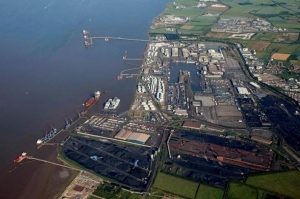


(Posted on 15/06/20)
The impact of the COVID-19 pandemic is only just beginning to be revealed in figures, but there are signs of recovery on the horizon for certain sectors, according to analysis published by the British Ports Association (BPA) and specialist analysts Port Centric Logistics Partners Ltd (PCLP).
Economic figures do not yet show the full extent of the downturn. Though with the publishing of Q1 2020 economic data, the darkness is now receding on the anticipated initial impact of the Coronavirus pandemic. With the recent news that UK GDP has fallen by 2% in terms of volume in the first quarter of this year, the greatest fall since Q4 2008, the overall economic outlook for all UK industries appears bleak.
However, with governments making plans for the safe re-opening of the UK economy, blue skies could be on the horizon. Ports are important regional employers, both directly and indirectly so any downturn can have negative impacts on certain communities. That said the continued health control measures designed to limit future spikes, such as the new quarantining rules, are sure to slow the economic recovery.
Now, as many sectors look to establish a path to recovery, the BPA and analysts at Port Centric Logistics Partners (PCLP) have prepared a snapshot of economic activity and port trade figures. Commercial advisory firm for the global ports and logistics industries, PCLP is a partner of the BPA and assists with regular industry economic monitoring and reporting.
Commenting on the figures, Richard Ballantyne, Chief Executive of the British Ports Association, said, “Quarter 1 of this year saw significant contractions in production and construction. Alongside this household consumption fell by 1.7% in the first three months of this year, the largest quarterly contraction since Q4 2008. This will have a significantly detrimental impact on UK businesses and ports, with a particular slowdown in containerised imports. However, demand for consumer goods should soon be re-established as the retail sector reopens in accordance with social distancing guidelines.
There was also a slowdown in Roll-on Roll-off vehicle freight transported on the UK’s network of ferry operators, as in Q1 accompanied traffic volume declined by 12.4% compared to Q1 2019. Unaccompanied freight was less severely hit with volume in that sector reduced by 9.5%, but this is no doubt also significant. However, perhaps more than most this sector has helped keep supermarkets stocked with food and essentials during the lockdown.
This has been a tough start to the year for many parts of the economy and we are keen to explore how the Government and industry can kick start the recovery. Ports are significant economic powerhouses and provide hubs of employment so a healthy trade climate is important to regional prosperity.”
Commenting, Stephen Taylor, Partner at PCLP, said, “We are not likely to know the complete extent of the impact of COVID-19 on different aspects of the economy for some years, and in many cases, the damage is still being done. We do see anecdotal signs of the beginnings of recovery in some cases. However, not all sectors will recover at an equal pace.
The construction sector has traditionally been a strong barometer for the economy, so if the health of the economy overall significantly declines, it may be a long road to recovery for this sector. However, government guidance does indicate that construction sites can re-open with social distance measures in place, which may aid the situation for the sector somewhat.
British car production fell by -99.7% in April, as a result of a shutdown of manufacturing in many cases due to pandemic response measures, according to the Society of Motor Manufacturers and Traders (SMMT). However, we do see signs of initial re-openings. For example, car showrooms re-opened last week in the UK, offering a vital stimulus to the sector. It is expected that demand will soon be re-established overseas; welcome news for the UK economy, as manufacturers of motor vehicles, machinery and transport equipment, will be able to return to producing the major share of UK exports.”
With this year’s Rail Conference “Rail Freight Transport and Seaports”, a joint initiative... Read more
Asian Bulk Logistics (ABL Group) and ICG have jointly announced the successful completion of ABL&rsquo... Read more
Abu Dhabi based AD Ports Group, a leading global enabler of integrated trade, industry and logistics... Read more
The Executive Board of Hamburger Hafen und Logistik AG (HHLA) has appointed Patrick Krawutschke as Managing... Read more
Abu Dhabi based AD Ports Group, a global enabler of integrated trade, transport, industry, and logistics... Read more
This year marks a significant milestone in maritime innovation as Port Hedland, Australia, celebrates... Read more
Associated British Ports (ABP), the UK’s leading port operator, has announced the latest tranche... Read more
During the Investment, Labour, and Trade Promotion Programme in Japan (November 16–22, 2025),... Read more
AD Ports Group subsidiary Khalifa Economic Zones Abu Dhabi - KEZAD Group, the largest operator of integrated... Read more
Abu Dhabi based AD Ports Group, a global enabler of integrated trade, transport, industry, and logistics... Read more